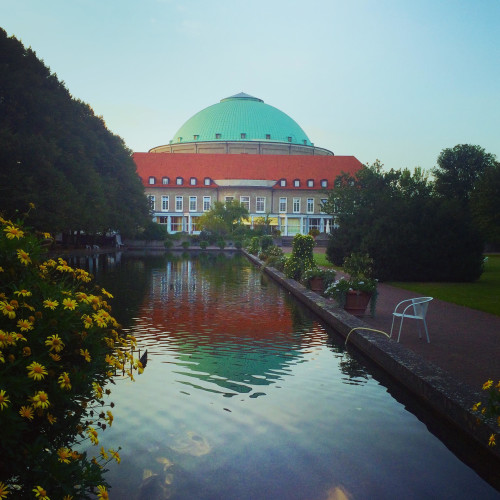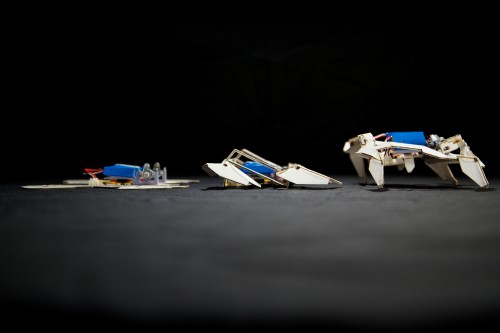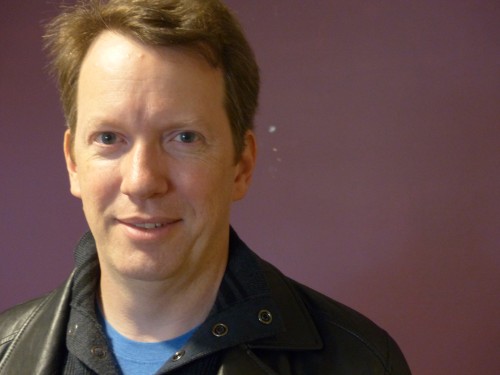Tag archives: popular science
LEGO acoustics, potato cannons go to war, personal politics and popular science
By Hamish Johnston
In the above video Brian Anderson of Brigham Young University shows how the acoustic concept of “time reversal” can be used to knock over a series of LEGO figures using sound. The idea is that sound waves are broadcast into an environment and captured by a sensor at a specific location. The signal is then used to work-out how the sound waves bounced about before reaching the location and this information is then used to target that specific location with subsequent sound waves. In the demonstration, sound knocks over 29 LEGO figures one-by-one. It’s very impressive and entertaining as well.
View all posts by this author | View this author's profile
Highlights from Ada Lovelace Day 2016
By James Dacey
Today is Ada Lovelace Day (ALD), a day to celebrate the achievements of women in science, technology, engineering and maths (STEM). Named after the 19th-century polymath Ada Lovelace, the annual initiative also seeks to engage with the challenges of attracting more women into STEM careers and supporting career development. Now in its eighth year, the day includes a number of events and online activities.
The day will culminate in a few hours with Ada Lovelace Day Live!, a “science cabaret” event at the Institution of Engineering and Technology in London (18:30–21:30, tickets still available). In what promises to be “an entertaining evening of geekery, comedy and music”, the all-female line-up includes several scientists from the physical sciences. Among them is Sheila Kanani, a planetary physicist and science comedian who is the education, outreach and diversity officer for the Royal Astronomical Society in London.
View all posts by this author | View this author's profile
Capturing your research on film

TPDL 2016 took place at the grand Hannover Congress Centrum.
Communicating science through video was the theme of a workshop I participated in yesterday in Hannover, Germany, as part of the Theory and Practice of Digital Libraries conference (TPDL 2016). It was a varied audience that included journalists, academics and librarians. I came away feeling inspired by all the possibilities, but realizing that science communication has a long way to go to use this medium to its full potential. I’ll share with you here some of the key messages.
As Physics World’s multimedia editor, I used my slot to talk about some of the journalistic videos I’ve produced and commissioned during the past few years – discussing what’s worked, what hasn’t and where I think journalistic video production is heading. I made the point that to create engaging web video you have to think carefully about how your audience will be watching the films. Your film may look great on a large monitor, but will it be enjoyed by someone watching it on a smartphone on a bus or train? Also, what are you trying to achieve with the film? Are you trying to entertain or promote something? Or perhaps you are trying to teach? The style and tone will vary depending on the purpose.
View all posts by this author | View this author's profile
Rise of the real transformers, a celestial farewell for your furry friend and more

Ready, steady, go: a profile view of the “transformer” robot. (Courtesy: Seth Kroll, Wyss Institute)
By Tushna Commissariat and Michael Banks
While the latest Transformers film hit cinemas in the UK earlier this month, scientists in the US at Harvard University, along with colleagues at the Massachusetts Institute of Technology, have developed the very first “real life” transformer: a robot that starts out flat, folds and assembles itself into a complex shape and can then crawl away – all without any human intervention. Indeed, these printed robots can self-fold themselves in about four minutes – a huge improvement on previous models that could take up to two hours. They can even turn and naviagte around, making them a handy and practical tool.
‘Outspoken’ scientist reveals his Hollywood life

Sean Carroll helps Hollywood use more believable science better in films. (Courtesy: Matin Durrani)
By Matin Durrani
This blog is a shameless plug for the latest Physics World podcast, in which I talk to Sean Carroll – the California Institute of Technology cosmologist who also serves as a science adviser to Hollywood.
I chatted with Carroll when he was in the UK speaking at the recent Cheltenham Science Festival and, in the podcast, you can find out about his favourite science-fiction films and why he thinks it’s important to get the science in such films right. Carroll also reveals who he thinks he’s most like in TV’s The Big Bang Theory.
Capturing science on film

People enjoying an outdoor screening in Sheffield’s Peace Gardens.
By James Dacey, reporting from Sheffield
For the past few days I’ve been back to the place where I grew up: the city of Sheffield in the north of England. It’s famed for its steel production and snooker, but I’ve been in town for what is billed as the world’s most exciting documentary and digital media festival: Sheffield Doc/Fest. There has been an eclectic mix of films and audio documentaries from around the world to enjoy but I’ve been focusing on a strand of the festival dedicated to “Ideas & Science”.
View all posts by this author | View this author's profile
